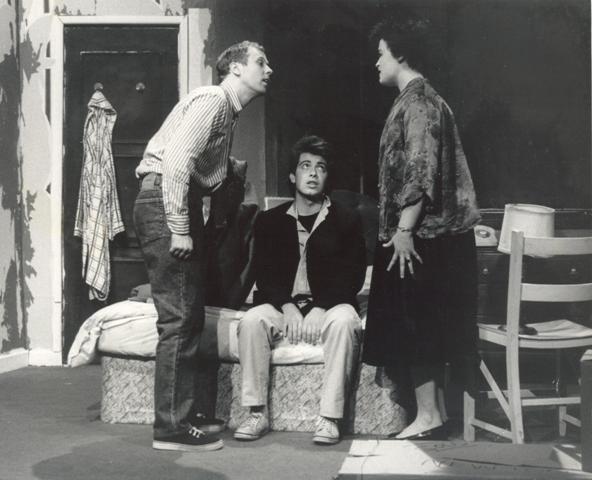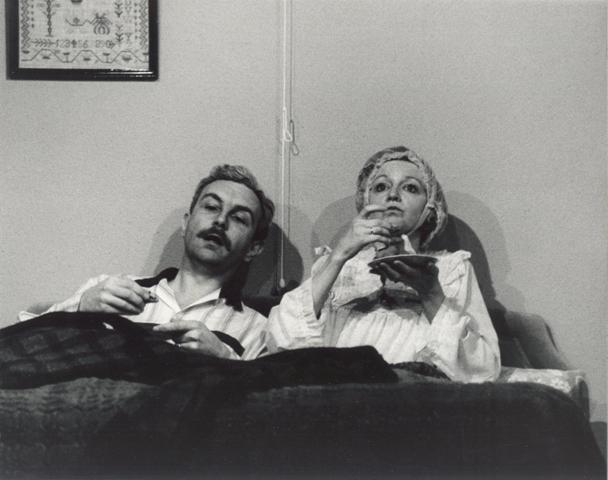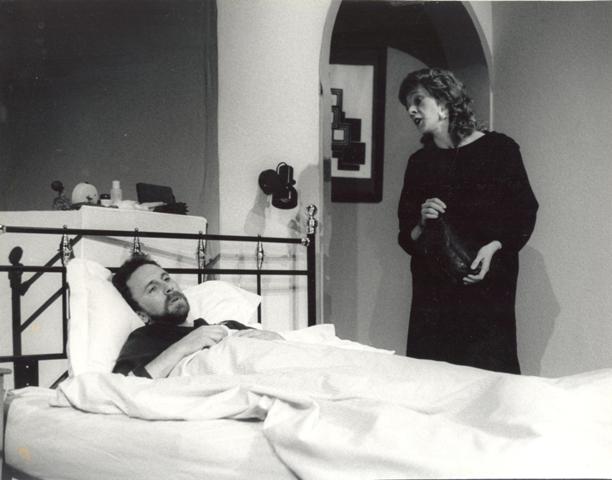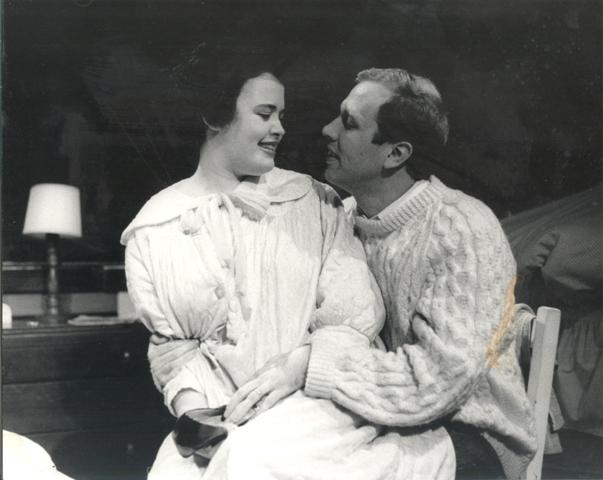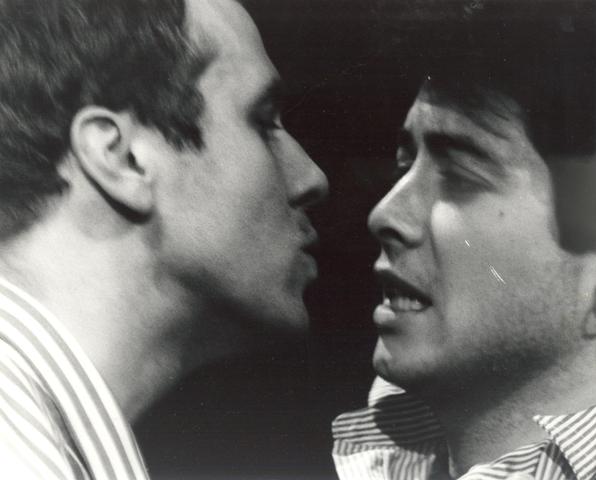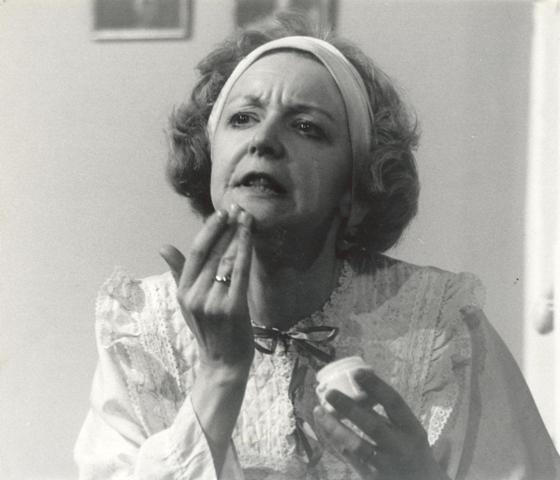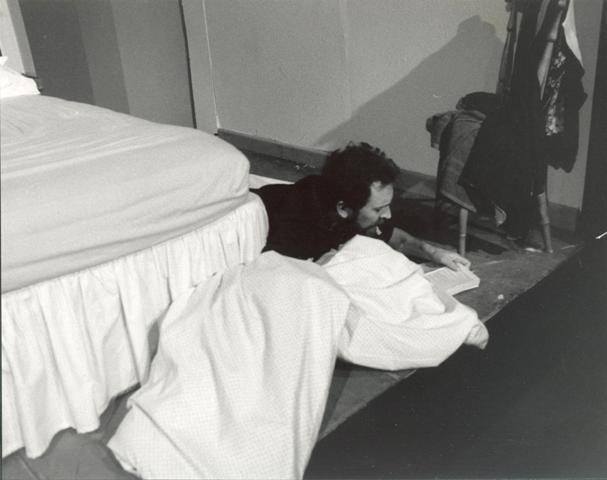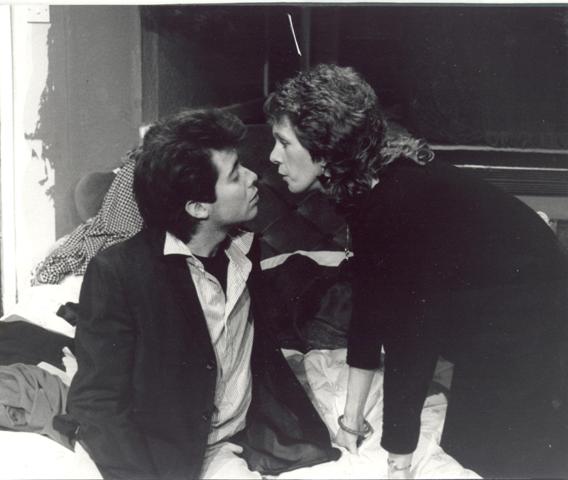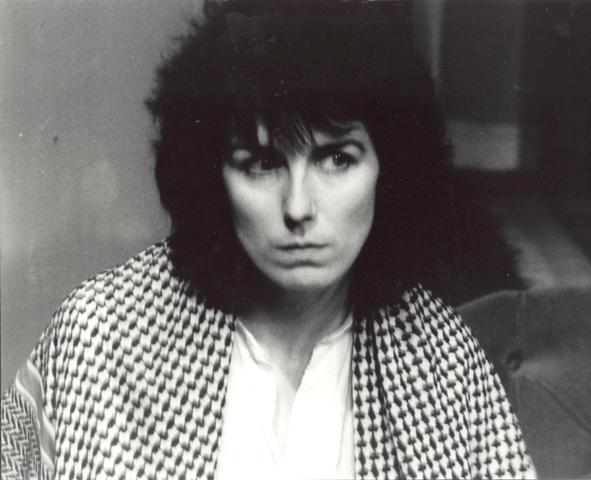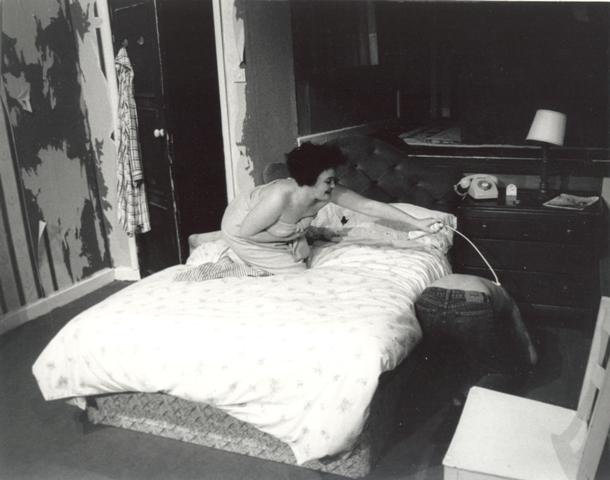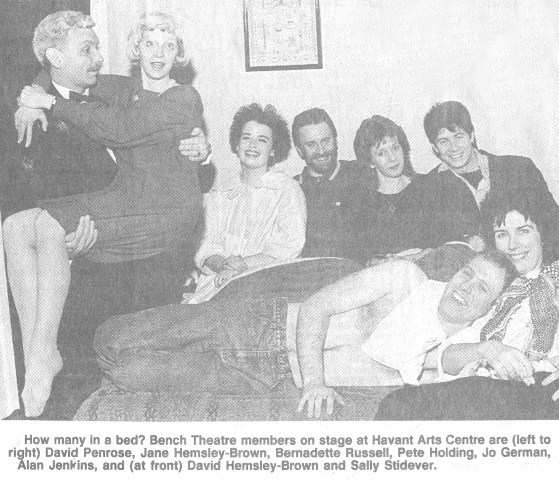The Bench Production
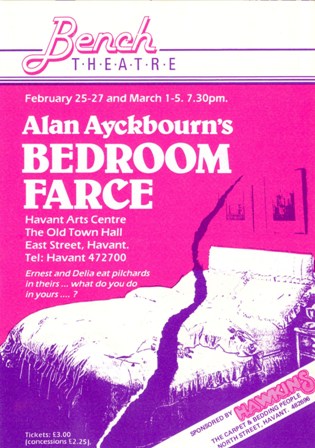
This play was staged at Havant Arts Centre, East Street Havant - Bench Theatre's home since 1977.
Characters
| Ernest | David Penrose |
| Delia | Jane Hemsley-Brown |
| Nick | Peter Holding |
| Jan | Jo German |
| Malcolm | David Hemsley-Brown |
| Kate | Bernadette Russell |
| Trevor | Alan Jenkins |
| Susannah | Sally Stidever |
Crew
| Director | Ingrid Corrigan |
| Stage Manager | Karen Bickers |
| Lighting | Jacquie Penrose, Graham Scott Mike Boyce |
| Poster Design | Pete Woodward |
| Programme | Lyn Mannell |
| Set Construction | Pete Codd |
| Front of House | Robbie Cattermole |
Programme Notes
This play has its moments of near farce and yet still contains elements of the claustrophobic - maybe because it's all in bedrooms. It is also the first time I've made use, to quite such an extent, of the cross-cut device. Jumping the action from bedroom to bedroom gives the play an added rhythm over and above what the dialogue normally provides. Again, I've allowed the characters to progress, develop and resolve very much in their own way. Perhaps none of them finds instant happiness or sudden great self-insight. But at least they retain the dignity of resolving their own destinies.
Alan Ayckbourn
My own feelings is that 'Bedroom Farce' (one of his very best) is actually just as 'serious' as Ayckbourn's doomier plays. It carries an audience along on an almost unending crest of laughter; but that laughter is anything but mindless. Ayckbourn sets up a brilliantly comic device, lets his imagination take over and allows the ideas to spring out of exact observation of human behaviour.He reminds us all the time that a play is an artifact, a toy, a construct; but that, at its best, it can also illuminate the human condition.
Michael Billington, from his biography of Ayckbourn
Reviews
The NewsLesley Goode
Ayckbourn play well worth visit
Cramming three double bedrooms onto the stage of The Old Town Hall, Havant, is no mean feat in itself; but that was just the first in an excellent production of 'Bedroom Farce' by the Bench Theatre.
The play explores one hectic night in the lives of four couples, and the tangled network of their relationships. But don't thing that it is a heavy philosophical tract - Ayckbourn's dialogue has a distinct thread of poignancy but it is primarily comedy, and was admirably brought to life by The Bench. We focus on each of the bedrooms in turn - a highly diverting dramatic device, and skillfully lit.
Jane Hemsley-Brown's sensible and stuck-in-her-ways Delia gained top comic marks, very closely followed by her "husband" Ernest (David Penrose), Kate (Bernadette Russell) and Nick (Pete Holding), who managed a tremendous presence while acting his entire role from his bed. Perhaps the wild-eyed whimpering Susannah (Sally Stidever) could have pitched her strife at a slightly lower level, or varies it a little - I found it hard to sympathize with her at all; it was a difficult job however to maintain such a character with little dialogue.
This is a well-produced and highly amusing play and well worth a visit. It runs until Saturday.
The News, 26th February 1988
